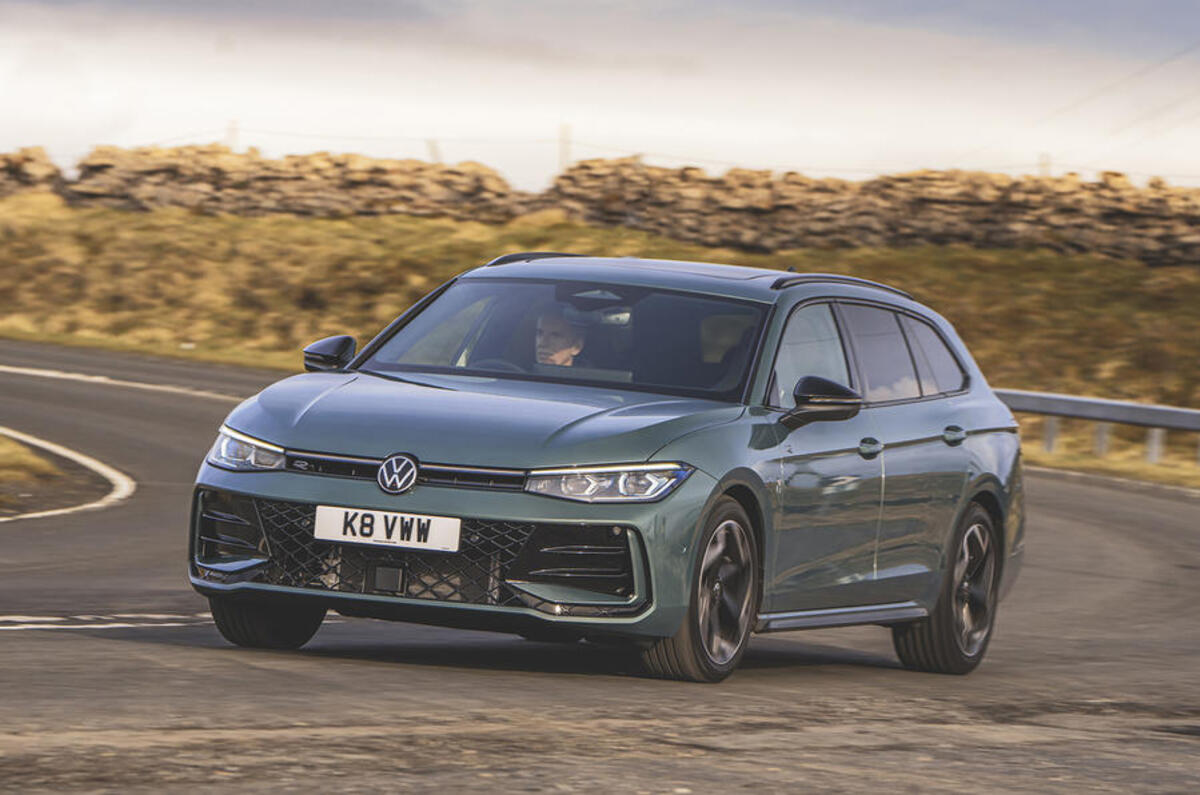Volkswagen will continue to invest in plug-in hybrid technology over the coming years as a bridge towards pure electrification.
The firm currently sells PHEV versions of the Golf, Passat and Tiguan, and boss Thomas Schäfer suggested the technology could be rolled out and improved in light of a "plateau" in demand for electric cars.
Speaking at the Financial Times Future of the Car conference in London, Schäfer echoed Nissan CEO Makoto Uchida and Hyundai president José Muñoz, who each suggested their firms would maintain a flexible powertrain offering as EV demand wavers.
Asked by Autocar if Volkswagen would continue investing in hybrids, Schäfer said: "Hybrids were a thing of the past. Last year, if you asked the same question, it would have been: 'Forget hybrids, it's expensive technology, it's not worth it.' Within the last six months, all of a sudden everyone wants hybrids.
"When we said we were going to offer hybrid on the Tiguan, Golf, Passat and so on, we were frowned upon. People said: 'Why are you doing this? Go faster [towards full electrification].' Now I'm very glad we did. We have an offer and we will probably have to even extend it.
"It's a bridge technology. While battery-electric drive is plateauing out a bit at the moment, we still need this transitional technology."
However, Schäfer added that he's "absolutely sure the future is electric" and hybrids will serve as a bridge towards the ultimate objective of all-out electrification.
To that end, Volkswagen will "carry on with what we have", Schäfer said, suggesting that any future PHEVs will use a variation of the system that's currently available in the Golf, Passat and Tiguan. "We will keep developing, but will we do a completely new drivetrain? I don't think so."
Schäfer added that Volkswagen doesn't necessarily need a PHEV offering "in every single model and in every single region" but rather development work will focus on reducing costs and boosting electric range.
As it stands, Volkswagen PHEVs offer among the longest electric ranges of any on the market, with the latest versions of the Golf, Passat and Tiguan PHEVs able to travel around 62 miles with the petrol engine off.
Development of new hybrid powertrains won't come at the expense of new EV platform development, Schäfer said, with the updated version of MEB – dubbed MEB Plus – and its SSP successor still on track for production in 2025 and 2026 respectively.










Join the debate
Add your comment
Automotive industry research indicates that hybrids of any type are a stepping stone to full electric, as most buyers only drive or buy one hybrid before going for a full electric vehicle subsequently. So actually, it makes sense to cut out the middle-man and just go fully electric from the start.
They say that people are concerned about EV range and charging infrastructure. But a PHEV has much smaller electric range and needs to be charged a lot more often.
If you don't charge it then you are left with an underpowered engine that has to move around an empty battery.
You are better off you an ICE vehicle.
To me, you either go for an EV if that suits your needs, or stick with ICE (or regular, non plug-in hybrid).
Because you can commute for free or very cheaply in EV mode all week, then have the convenience of ICE for weekends and other longer drives.